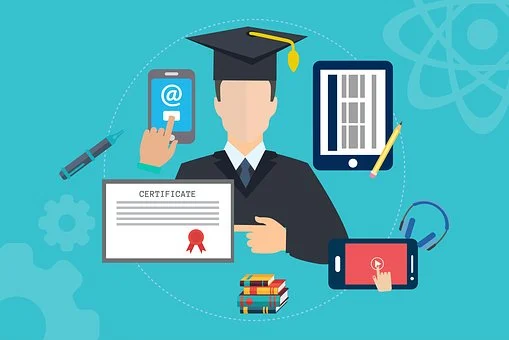The Power of Online Learning: Creating Inclusive Spaces for Neurodivergent Minds

Disclaimer: The post on is developed in partnership with BetterHelp.
Think about school. For some, it was a breeze. But, if you have something like ADHD, dyslexia, or autism — any of those things that make your brain tick a little differently — it might have been more like an obstacle course. That’s the thing about traditional classrooms: they’re built on a one-size-fits-all model. And if you don’t fit the mold, it can feel like a constant struggle between trying to adapt and feeling like you don’t belong.
But what if there was a different way? What if we could create inclusive educational spaces for neurodivergent minds, where everyone’s unique learning needs are not only recognized but embraced?
Online learning is opening up amazing possibilities for learners with neurodivergence. It has the potential to break down barriers and create inclusive, supportive learning environments. This article will explore the power of online learning in creating a space where neurodivergent minds can thrive and succeed.
Understanding Neurodiversity
First off, what’s “neurodivergent”? It just means that brains work in many different ways. Variations in the human experience can influence how we learn, process information, interact with others, and navigate the world. These variations are known as neurodiversity.
Some people think in a very linear, step-by-step way — this is called being neurotypical. The spectrum of neurodivergence includes conditions like autism, ADHD, dyslexia, and many others. These are not diseases or disorders but simply different ways of processing information and interacting with the world.
Neurodiversity is a natural and valuable part of human diversity. It encompasses a wide range of abilities and experiences that should be celebrated rather than stigmatized. Unfortunately, traditional education systems designed solely for neurotypical brains can make things a lot harder for anyone else.
Now, everyone, neurotypical or not, has strengths and challenges. However, individuals with neurodivergent brains often run into frustrating barriers in traditional learning settings. These obstacles can impact far more than just grades. They can erode our self-esteem, making us feel like we just aren’t “smart enough,” when really the problem is that the system doesn’t fit our needs.
How Online Learning Changes the Game
Online learning offers a flexible and customizable approach to education that can be a game-changer for learners who think differently. Through its emphasis on accessibility and personalization, online learning has the potential to create inclusive spaces where neurodivergent minds can thrive.
Here’s where eLearning can truly shine:
- Freedom to learn at your own pace: In a crowded classroom, if you miss one thing, the teacher’s on to the next topic whether you’re ready or not. Online, you can rewind, re-read, and pause when you need a brain break. No more getting lost or feeling behind.
- Customizing your environment: Sensory overload is a huge challenge for individuals with neurodivergent minds. Fluorescent lights, scratchy clothes, and background noise can make focusing nearly impossible. At home, you control the space. Dim the lights, find those comfy clothes, put on those noise-canceling headphones — whatever helps you learn best.
- Re-thinking communication: Ever freeze up when called on in class? Online offers loads more options. Maybe you communicate better by typing than by talking. Forums and messaging features let you shine without the pressure of speaking on the spot.
- The power of choice: Feeling in control of your learning process is a major boost in motivation. Can’t do long lectures? Many eLearning courses are built with short, engaging modules, making them far less overwhelming.
While your experience with neurodiversity is unique, one of the greatest benefits of online learning is its ability to cater to individual needs and preferences. This inclusivity means you can fully embrace your way of thinking and learning without feeling like you have to conform.
Beyond the Classroom: Building Skills for Life
Soft skills are the personal attributes that enable us to interact with others and succeed in the workplace effectively. Online learning provides a great opportunity to develop these skills in an inclusive and supportive environment.
Building life skills can help us navigate the world and communicate our needs effectively. The benefits of online learning extend far beyond the classroom, giving individuals with neurodivergent minds the tools they need to thrive in all aspects of life, including:
- Career success: Learning to work with your unique learning style translates to better job performance. Maybe you finally mastered that complex software or your ability to see patterns that others miss becomes a major asset to a team.
- Independent living: Practical eLearning can cover everything from money management to cooking basics. For many, this builds the confidence and skills to live independently, a huge milestone.
- Finding your people: Online learning communities can connect different types of people from all over the world. That kind of understanding and support combats the isolation we often feel. It lets us know we’re not alone.
Addressing Challenges & The Role of Support in eLearning
Like anything, eLearning isn’t a magic fix-all. Sometimes, we still need help, and that’s okay. Here are a few bumps in the road and how to navigate them, especially when those self-esteem challenges complicate the picture:
- Motivation struggles: Some people may struggle with procrastination or getting started. This isn’t laziness. It can be rooted in anxiety from past failures or executive function differences. Building in external accountability helps, like a study buddy or virtual “work with me” sessions. Breaking down tasks into tiny steps can also make them less difficult.
- Tech issues: Not everyone has equal access to reliable internet or devices, which is a serious equity problem. Schools and libraries need to work on solutions for this. But if there’s a tech issue you can’t fix, it’s easy for the inner critic to flare up (“See, I’ll never be able to do this…”). Remind yourself that it’s a tech problem, not a personal failure.
- The need for guidance: Even with flexibility, some learners thrive with a human touch. Look for eLearning programs that have options for mentor check-ins or online tutoring. A good mentor can not only explain the material but also offer the encouragement that many individuals may need.
For those with neurodivergence, these common bumps in the road can hit extra hard. Years of trying to fit into a system that wasn’t designed for us may take a toll, making us doubt ourselves at every turn. It takes extra effort to push past that voice telling us we’re not good enough and to persist when challenges arise in the online learning space.
Self-esteem is a delicate matter, especially when faced with academic or societal pressures. Online therapy platforms like BetterHelp can provide accessible and professional support to help address these challenges.
Online learning is not always a one-size-fits-all solution, but it can be an incredibly valuable tool in our educational journeys. With the right support and mindset, online learning has the potential to empower us to embrace the uniqueness of our minds and thrive in all aspects of life.
The Power of Believing in Potential
Online learning doesn’t just provide us with knowledge. It can change how we see ourselves. When the world keeps telling you that you don’t fit in, it can harm your self-esteem. But when learning is made for you, it changes everything. Online learning gives you both the tools to succeed and the belief that you can.






